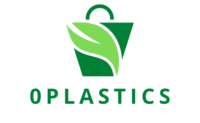Plastic in Our Plates: The Silent Siege of Microplastics
Plastic, once celebrated for its convenience, now casts a long shadow over our health. Beyond overflowing landfills and choking marine life, plastic has stealthily invaded our food and beverages, disguised as microscopic threats called microplastics. These tiny invaders, less than 5 millimeters in size, are weaving their way into our plates, raising concerns about potential health risks.
Microplastics originate from various sources. Plastic bottles shed fibers, synthetic clothes release microfibers, and breakdown of larger plastic debris pollutes our environment. These persistent particles travel through air and water, infiltrating ecosystems and ending up in our food chain. Studies have detected microplastics in seafood, honey, vegetables, fruits, and even bottled water.
The ubiquity of microplastics is alarming, but the long-term health effects remain shrouded in uncertainty. Some studies suggest potential harm, including:
- Disrupting gut health: Microplastics may harbor harmful bacteria and pathogens, altering gut microbiome and potentially leading to inflammatory bowel disease.
- Exposure to harmful chemicals: Certain plastics contain additives like BPA and phthalates, which can leach into food and beverages, interfering with hormonal functions and potentially increasing cancer risks.
- Bioaccumulation: Microplastics can accumulate in our bodies, potentially reaching critical levels and causing organ damage.
While conclusive evidence regarding health risks is still emerging, the potential threat cannot be ignored. We must take immediate action to curb plastic pollution and minimize our exposure to microplastics. Here are some steps we can take:
- Reduce single-use plastics: Opt for reusable alternatives like cloth bags, metal straws, and glass containers.
- Support responsible brands: Choose companies committed to sustainable packaging and microplastic reduction initiatives.
- Demand government action: Advocate for stricter regulations on plastic production and disposal, and support research into microplastic detection and removal technologies.
- Spread awareness: Encourage others to understand the issue and adopt plastic-conscious practices.
The battle against microplastics is not just for cleaner oceans and greener landscapes; it’s a fight for our health. By making informed choices and demanding responsible practices, we can reclaim our plates from the silent siege of microplastics and secure a healthier future for ourselves and the planet.
